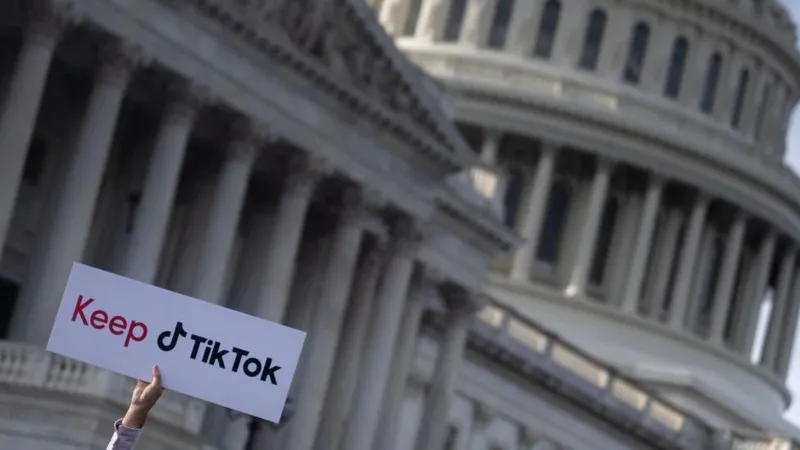
What you need to know:
- In its lawsuit, the social media giant criticized the law as an infringement on free speech rights, asserting it’s based on speculative concerns and urging the court to intervene.
- This legal dispute is part of broader US efforts to confront Chinese tech firms, as illustrated by the Department of Commerce’s recent move to restrict exports to Huawei over national security concerns, highlighting escalating tensions between the two global powers.
TikTok has initiated legal action to contest a US law seeking to prohibit the video-sharing platform unless it’s divested by its Chinese parent company. In its lawsuit, the social media giant criticized the law as an infringement on free speech rights, asserting it’s based on speculative concerns and urging the court to intervene. President Biden enacted the law citing national security reasons, amid longstanding worries in Washington about TikTok’s Chinese ownership potentially compromising user data security. TikTok insists on its independence from the Chinese government, and ByteDance, its parent company, has no intentions to sell.
The Chinese government condemned the law as US bullying and vowed to resist any sale. White House press secretary Karine Jean-Pierre described the law as a divestment rather than a ban, redirecting inquiries to the Department of Justice, which refrained from comment. The law mandates app stores to cease offering TikTok in the US by January 2025 unless ByteDance finds a buyer. TikTok argued the sale requirement is unfeasible within the stipulated timeframe and unfairly targets the platform, creating a disparate speech regulation.
TikTok pointed out previous attempts to ban it, including by former President Trump, faced legal challenges. Moreover, it highlighted the paradox of politicians, including President Biden, maintaining accounts on the app despite security concerns. The US has historically restricted foreign ownership in sectors like broadcast media, but TikTok argues its platform is privately operated and shouldn’t be subject to such dictates. Despite TikTok’s investments to address US concerns, some in Washington view them skeptically, considering them as a marketing ploy.
Jacob Helberg, overseeing a committee monitoring US-China trade security, dismissed the lawsuit as unserious, failing to address the national security threat. Conversely, Ashley Gorski from the ACLU contended that TikTok’s lawsuit raises valid free speech concerns, suggesting the government hasn’t demonstrated a dire security risk justifying such a ban. Lawmakers’ remarks, like Senator Mitt Romney’s tying support for the law to shaping perceptions of international conflicts, could undermine its defense.
Congressman John Moolenaar, confident in the law’s validity, emphasized the perceived national security risk posed by TikTok and its ties to the Chinese Communist Party. This legal dispute is part of broader US efforts to confront Chinese tech firms, as illustrated by the Department of Commerce’s recent move to restrict exports to Huawei over national security concerns, highlighting escalating tensions between the two global powers.

Do you have a story or an opinion to share? Email us on: info@falconposts.com Or follow the Falconposts on X Platform or WhatsApp for the latest updates.





